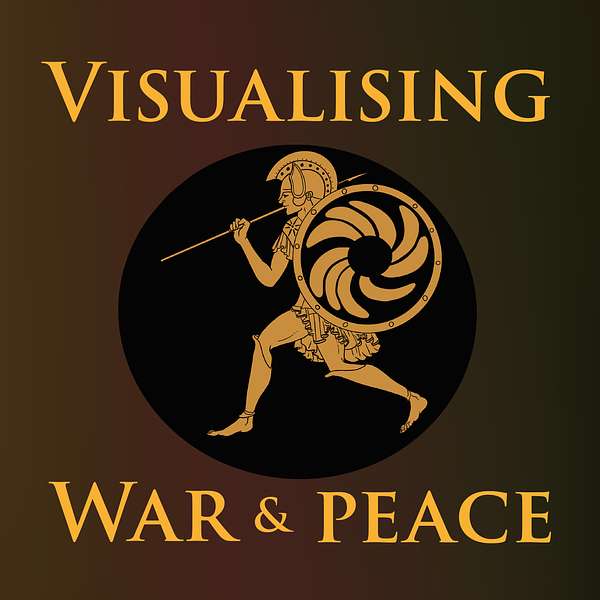
Visualising War and Peace
How do war stories work? And what do they do to us? Join University of St Andrews historian Alice König and colleagues as they explore how war and peace get presented in art, text, film and music. With the help of expert guests, they unpick conflict stories from all sorts of different periods and places. And they ask how the tales we tell and the pictures we paint of peace and war influence us as individuals and shape the societies we live in.
Visualising War and Peace
Visualising action: pre-battle speeches in ancient Judaism
Use Left/Right to seek, Home/End to jump to start or end. Hold shift to jump forward or backward.
In this episode, Alice interviews Dr Joseph Scales, a Marie Curie Postdoctoral Fellow in the department of Religion, Philosophy and History at the University of Agder in Norway. This podcast is the second part of a pair looking at the history and representation of conflict in ancient Judea.
In part 1, Conflict and Identity in Ancient Judaism, Joe gave us a whirlwind tour of a whole series of conflicts that shaped Jewish history from around 175 BCE through to the early second century CE – looking particularly at their impact on Jewish nationhood and identity formation. That conversation provides really useful context for this epsiode, which dives deep into some of the textual sources for Jewish conflict history in antiquity. Joe draws particularly on his current research project, called Fighting Talk: Motivating Violence in Ancient Judaism, which examines the nature of pre-battle speeches in ancient Jewish texts and their relationship to established forms of pre-battle exhortation in Greek and Roman sources.
As Joe has written: ‘People resort to violence for all kinds of reasons. In the interests of peace, it is essential to understand how people may be incited toward organised violence. …In warfare, combatants are often incited towards their actions by others, and in the ancient world, such incitement frequently took the form of a pre-battle speech: Greek, Roman and Jewish literature contains many examples.’ In unpicking a wide range of ancient pre-battle speeches, and exploring recurring components (such as the othering of enemies, claims about the just or necessary nature of upcoming violence, a commander’s handling of his soldiers’ fears, and visualisations of success), Joe’s research contributes not only to a deeper understanding of how warfare was conceptualised and driven in antiquity but also to wider reflections on how organised violence can be conceptualised, justified and incited today.
We hope you find the discussion interesting. For a version of our podcast with close captions, please use this link. For more information about individuals and their projects, please visit the University of St Andrews' Visualising War website.
Music composed by Jonathan Young
Sound mixing by Zofia Guertin